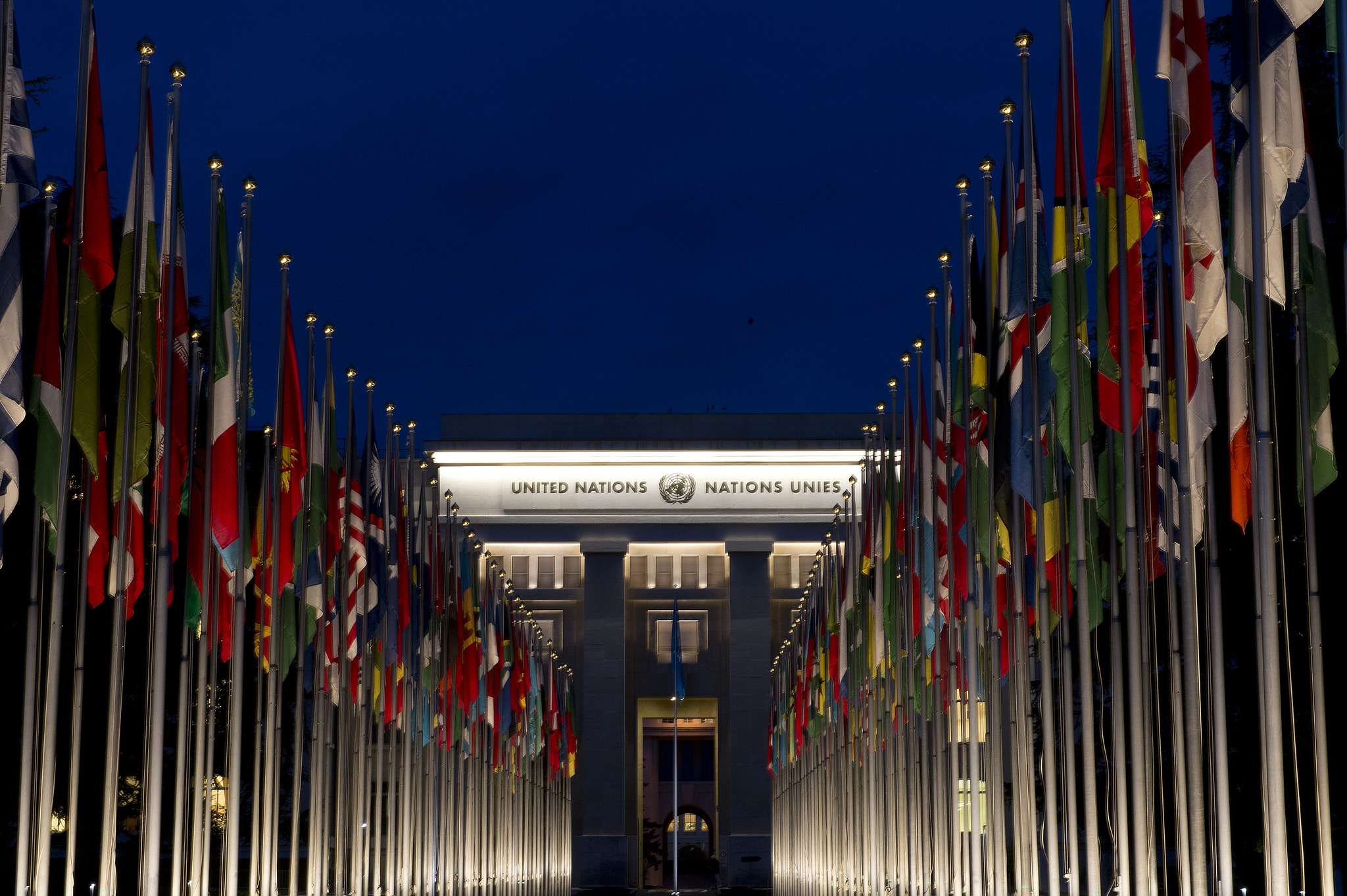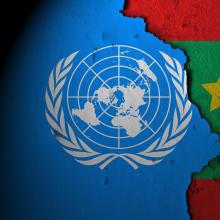September 29, 2021

Palais des Nations by night © Jean-Marc Ferré, licensed under CC BY-NC-ND 2.0
On September 29, 2021, Ms. Ilze Brands Kehris, the United Nations (UN) Assistant Secretary General for Human Rights, presented the 12th annual report of the UN Secretary General on cases of intimidation and reprisals against individuals cooperating with the UN, its representatives and mechanisms. The report, which is based on information gathered between May 1, 2020 and April 31, 2021, highlights alleged acts of reprisals committed during this time period by UN Member States and non-state armed groups against individuals and groups cooperating with UN mechanisms or representatives. The report additionally includes updates on acts of reprisals documented in the Secretary General’s previous annual reports.
Reprisals in the Middle East and North Africa (MENA)
The Secretary General’s 2021 report noted ongoing cases of reprisals committed by more than 30 UN Member States, including several countries in the MENA region – such as Egypt, Iraq, Libya, Saudi Arabia, the UAE, Syria and Yemen. In April 2021, MENA Rights Group submitted a report to the UN Secretary General documenting ongoing cases of intimidation and reprisals against individuals who had cooperated with the UN human rights mechanisms.
Egypt
In the case of Egypt, the report highlighted the Egyptian authorities’ use of counter-terrorism and national security legislation in order to silence dissent and prolong the detention of individuals arrested in reprisal to their activism with the UN. In that regard, the report contained updates on the ongoing threats and acts of reprisals being faced by Ebrahim Metwally Hegazy, Bahey El Din Hassan, Ahmed Amasha, Mohamed El-Baqer, and Ramy Kamel Saied Salib.
Iraq
As part of the reporting mechanism, updates on previously documented cases of reprisals were also included in the report. Among them were updates on the staff of the Iraqi Al Wissam Humanitarian Assembly, whose staff members continue to face death threats and harassment in response to their documentation and submission of cases of enforced disappearances in Iraq.
Saudi Arabia
The report also emphasized Saudi Arabia’s continued use of arbitrary arrest, torture, and heavy sentencing and harassment against individuals arrested following their cooperation with the UN mechanisms. It also highlighted updates to the cases of Loujain Al Hathloul, Samar Badawi, Mohammad Fahad Al Qahtani, Issa Al Nukheifi, Issa Al Hamid, Amal Al Harbi, and Abdullah Al Hamid, who passed away in April 2020, following deliberate medical neglect by prison officials at Al-Ha’ir prison in Riyadh. Saudi Arabia’s use of counter-terrorism legislation and security-related measures to target civil society representatives was also brought to light throughout the report, with particular reference to the Saudi authorities’ use of the 2017 Law on Combating the Crime of Terrorism and Its Financing to target civil society representatives.
UAE
The Secretary General’s report additionally shed light on going acts of reprisals committed by the United Arab Emirates against prominent Emirati human rights defender, Ahmed Mansoor, including the fact that he was subjected to torture and solitary confinement. The report also noted the cases of Amina Al Abdouli and Maryam Al Balushi, who, despite having served their sentences, remain detained after being charged with three new charges in 2019, in response to their campaigning efforts from within prison. Updates on Ahmed Mekkaoui, a Lebanese citizen who was placed in solitary confinement by the UAE after the UN Working Group on Arbitrary Detention issued an opinion on his case, were also provided for in the report. Mekkaoui, who was placed in solitary confinement in 2019, has been prevented from in-person contact with his family since early 2020.
Yemen
Both the Yemeni government and Houthi forces have been responsible for acts of reprisals committed against human rights defenders, lawyers and organisations. As mentioned in the Secretary General’s report, state representatives continue “to block or delay the accreditation of certain civil society representatives that continue to be received.” Such was the case with the Yemeni Mwatana Organisation for Human Rights, whose staff faced new threats as high-ranking government officials organised a campaign seeking to prevent the organisation from gaining a consultative status from ECOSOC.






